- Home
- Peter Cawdron
Collision
Collision Read online
Collision
Copyright © Peter Cawdron 2016
All rights reserved. The right of Peter Cawdron to be identified as the author of this work has been asserted by him in accordance with the Copyright, Designs and Patents Act 1988. All the characters in this book are fictitious, and any resemblance to actual persons living or dead is purely coincidental.
Cover design art by Planet Maker.
Chapter 01: Code White
“Dr. Callie. Dr. Callie. Code White. Come quick.”
Being the only surgeon in a rural Chinese hospital, I’m used to being summoned at all hours, but normally only for medical emergencies. Hearing a Code White has me reluctant to lay down my stethoscope. It’s seven in the evening and I’ve been on my feet for ten hours straight. Several farmers were brought in this morning suffering from third degree burns after a fuel reservoir caught fire. We treated them as best we could and arranged for them to be transported to a major hospital better equipped to deal with their injuries.
“I’ll be right back,” I say to the heavily pregnant teenaged girl lying on the raised bed before me. She’s been waiting to see me since lunchtime, and has minor abdominal cramping. In the US she’d see a specialist, and as I’m an ENT, I’d only ever do ear-nose-throat surgery over and over, day after day, year in, year out, but here in China I get the full spectrum of medical activity and I love it. As a kid, I was involved in a car accident that resulted in severe abdominal injuries. It means I can never have children. But seeing other women pregnant is cause for celebration, not sadness. For me, it’s an honor to be part of the process.
The girl sits up, cradling her swollen stomach. As I leave the room, I hang onto the doorframe, saying, “You’ve got two weeks, max. Baby’s happy and healthy. Everything’s normal. You’re going to be fine.”
Chen tugs at my sleeve, urging me on.
“Quick,” she says, repeating herself, but not providing me with any explanation.
Yelling echoes down the hallway. My Chinese is rusty. On good days, I can make out most words, but if I’m tired, or someone’s speaking rapidly, the intricacies of the language become a muddle of noise.
We run, although toward what?
Running doesn’t seem wise.
Code White. Blue is cardiac arrest. Orange is multiple casualties requiring immediate attention. Grey is hemorrhage. Green is deteriorating condition, normally associated with rapid onset diseases, or bacterial infections. The dry cold on the fringe of the Mongolian Steppes tends to keep most microbes at bay, so green is rare. Occasionally, we get cases of rabies, or outbreaks of ringworm. But white? In eighteen months, I’ve never been called in on a Code White. White is a security incident, and they’re normally handled by the Chinese police, as their station is across the road.
Gunshots echo through the hospital, and I falter. Someone’s screaming. Glass shatters. Doors slam, and again deafening gunshots ring out.
Chen slows her pace. We come to a halt at the corner of the corridor leading to the emergency department. She looks at me, and we both feel the trepidation of the moment. Guns aren’t toys. Even the most seemingly banal action over the next few minutes could have far reaching consequences.
Chen is from the local Wusun tribe, a nomadic people that have traversed the deserts here for thousands of years. Her dark hair, bushy eyebrows, and soft, smooth, clear complexion speak of a mysterious lost world, when the Silk Road once joined East and West. Like me, fear pulses through her veins. We have no idea what awaits us, but we’re doctors, we’re committed to preserving life. Some might flee, but our patients can’t. As they’re in danger, we have to press on. Come what may, we have to try to protect them.
As a foreigner, I’m am oddity—a curiosity. Locals look at me as though I can summon both angels and devils. I only hope that my help comes from above today.
I step around the corner as a police officer is thrown through the wall not more than ten feet from me. Cheap particle board collapses around his crumpled shape. There’s so much yelling I can’t separate the words, but I can see what’s happening. An old man lies on a gurney to one side of the corridor. Beyond him, a short stocky tribesman is fighting with several police officers. Thankfully, the gunshots have been directed into the ceiling, fired in bluster while trying to break up the fight. A senior police officer stands in the reception area, his gun still pointing up.
Although there are four officers involved in the melee, the tribesman has the better of them. He’s barely five foot in height, but has the strength of an ox. Even with batons drawn, the officers are no match for him, and they reel from his blows. To my astonishment, he grabs a wooden bench capable of seating three or four people, and swings it like a baseball bat, connecting with several of the officers, knocking them to the ground.
Chen and I inch down the corridor. She’s calling for sanity to prevail. I grasp the vague essence of her words, “Peace. Calm. No more.” I have my hands out, pleading for the violence to end, but in the panic of the moment, my words are in English.
“This is madness! You have to stop.”
The tribesman is distracted by our sudden appearance. The senior officer sees an opening and fires. The nomad reels to one side. Blood explodes from his shoulder, splattering across the wall, but he will not be deterred. With inhuman strength, he rips the counter off the reception desk, tearing off a panel easily eight feet in length, and flipping it over like balsa wood. Computer screens and keyboards go flying. The tumbling countertop crashes into the ceiling, bringing down panels and burying the officer in debris, knocking the gun from his hand.
In the silence that follows, the tribesman steps over the rubble, closing in on the officer trapped beneath the wreckage.
“No,” I yell, fearing he’ll tear the poor man’s arms from his sockets.
The tribesman looks at me. Our eyes meet and I see something I’ll never forget—dark, haunting pupils that seem to stare through me.
I scramble for the right Chinese words, using terms he’ll understand rather than Western words like hospital, or doctor.
“This is a place of life, not death. We help people. Heal them.”
He pauses.
“No harm,” I say. “We don’t hurt people.”
The tribesman is brutish. He’s wearing a traditional dress, lavishly adorned with flecks of red and gold, blue and black, but the fabric is faded. Worn patches speak of repetitive work—hard labor. His chest heaves. His nostrils flare, although not with anger. From the anguish on his face, he seems upset. His eyes dart around at the devastation covering the floor, not settling on any one object. It’s as though he’s surprised by what’s happened, that he has wrought such destruction. The officers scramble for safety, dragging their injured away and retreating behind us.
I edge forward, saying, “We care for the injured.”
I have my hands out as though I’m calming a wild horse.
“You’re injured.”
At those words, the tribesman turns, looking at the old man on the gurney.
“Is he your friend?” I ask, slowly stepping forward, picking my way over the broken glass and busted particle board as though I were negotiating a minefield. He tosses his head with an expression that reminds me more of an animal than a human. It’s as though he’s signaling I’m close, but not correct.
“Your father.”
With those words, the tribesman steps back toward the old man on the gurney. He snorts, clearing his nostrils.
The senior officer frees himself. He retrieves his gun, but I shake my head, pointing with my hand, and signaling for him to back away. Several male nurses and another doctor appear at the far end of the corridor. I signal for them to stay back.
“You want us to look at your father.”
T
he tribesman offers a single nod, but again, his motion is more circular than vertical. He seems to roll his chin as though he were stretching his neck muscles. He huffs, breathing out a massive volume of air and releasing the tension in his muscles. His shoulders sag. Blood drips from his fingers, running down the inside of his arm, but he doesn’t seem to notice. His hand reaches out and touches softly at the gurney. I can’t help but notice his wrist and knuckles. Physically, he’s shorter than me, but he’s built like a bear. With broad shoulders and thick stocky arms, he’s got the physique of a bodybuilder, only scaled down. His hands are showing signs of advanced arthritis. His knuckles are grotesquely swollen.
At a guess, he couldn’t be more than twenty, maybe twenty five years old. The high altitude deserts of northwest China have a way of aging men and women well before their time, but his skin still has a youthful appearance. He’s sporting a beard, but with a gradual rather than a marked delineation as his hair is thin and straggly.
Chen tends to one of the police officers, while I approach the gurney. The old man is frail. He’s tall. Easily six feet in height, which is rare for this region where poor diets and natural genetics give most men a height of around five foot eight inches, right at my height. Having come from America, where most of the men I knew were six foot plus, it’s nice to look Chinese men in the eye without looking up at them. The nomad is the first man I’ve ever peered down at.
“We’re going to help your father,” I say as the tribesman bows his head over the old man. His thin lips quiver. I signal with my hand, gesturing for one of the nurses to come over. “We have to take him now. Do you understand?”
There’s no response. I push gently on the gurney, rolling it back a little so the nurse can reach it. “Take him into ICU. Get him on a saline drip. I’ll be in there in a minute.”
“Yes, doctor.”
The tribesman looks up at me. Tears sit in the corner of his eyes, which is confusing. I’ve just watched him demolish a hallway, tossing police officers around as though they were rag dolls, and yet the emotion that dominates his heart is sorrow.
“He must come with us,” the senior officer says.
“He’s injured.”
“He resisted arrest.”
“Why did you arrest him?” I ask.
“He is a wild one. He should not be here. They know not to come into the city.”
That’s not a reason.
“You were turning him away?” I ask.
“He—” The officer never completes his sentence. Just a stare from the nomad is enough to convince him to back down. It seems the tribesman would quite happily resume where things left off should the officer press the point.
“It’s okay,” I say to the tribesman. Turning to the officer, I say, “You should leave.”
“But I—We are here for your protection.”
“I think you’ve provided quite enough protection for one night, don’t you?”
The officer looks angry.
“He’s not going anywhere,” I say, gesturing at the bloody shoulder of the tribesman. “Not tonight. And not while his father is in ICU. Now, go. Please.”
The senior officer lets out a short huff. He’s not happy about leaving, but my status as a foreign doctor seems to hold some authority in his mind so he backs away. The other police officers are bruised, but not seriously injured. It seems their pride, rather than their bodies ache. One of the young officers appears to have a dislocated shoulder, but he’s using his hand, so he’ll be fine. Chen rigs a sling for him. I have no idea how I’m going to explain this devastation to the hospital board in the morning, but the police provoked the tribesman. How he fought them off, though, is beyond me.
I’m not sure why I’ve sided with the tribesman. Perhaps it’s that he’s clearly misunderstood. Perhaps it’s that the police were far too heavy handed. Perhaps there’s a little bit of rebel in me that favors the underdog, but I’m glad to see the back of the officers.
“Let’s get you fixed up,” I say, turning to the short, stocky man. He looks at me with bewilderment, and I have to take him by his good arm and lead him down the hall to the emergency department. Behind me, several janitors start arguing about the mess. I leave them and the nurses to figure out what to do about the damage.
ICU is somewhat of a grand term for a room with a few oxygen cylinders, a couple of biometric monitors and a bunch of intravenous drips. Intensive Care Unit it is not, but we care for the locals as best we can.
I gesture for the tribesman to lie on a gurney beside his father.
Although the young man has been shot, he’s not showing any of the classic symptoms of shock. His eyes haven’t dilated. He’s lucid and attentive. I check his wound briefly, making sure it’s not hemorrhaging internally, and then check on the father, who’s remained unconscious throughout all this.
The tribesman lies down facing his father. The concern shows on his thick brow.
Chen fixes an oxygen mask over the old man while I listen to his heart with a stethoscope. Our eyes meet and she shakes her head softly. We both know. We’ve both seen enough death to understand when the end is nigh. His erratic, fading heartbeat suggests hours, not days. All we can do is make him comfortable.
“And him?” she whispers as I slip on a pair of clear surgical glasses, a paper mask, and scrub my hands in the nearby sink.
“Him,” I say, unsure how to reply. Like me, he’s out of place, perhaps that’s why I have an affinity toward him. I don a pair of disposable gloves.
“I need you to lie on your back,” I say, and he responds, rolling over. “You’re a quiet one, aren’t you?”
“They’re dumb,” Chen says.
“Dumb? Some of the brightest minds ever to grace this planet have been unable to speak. Helen Keller. Stephen Hawking.”
“Steve Hawk?” she asks. “Is he the surfer or the skateboader?”
“Never mind,” I reply as she hands me a sterile swab. I clean the gunshot wound, picking out foreign objects like flecks of wood and strands of cloth—anything that could harbor microbes.
“Light,” I say from beneath my mask, and the nurse assisting us adjusts an overhead lamp, focusing it on the wound. “Well, could have been worse. Could have been a lot worse.”
Chen anticipates my needs, handing me a needle loaded with a shot of local anesthetic.
“This might bite,” I say to the tribesman, who’s unusually subdued. I lean over him. His eyes focus intently on mine, which is unnerving. In the US, most surgery is conducted using general anesthetic. Here, though, that’s the exception, and I’ve learned to talk in calm tones about everything other than what I’m doing, as that’s the easiest way to keep patients relaxed. Pain is both physical and mental. Reduce stress, and the pain felt by a patient can be little more than discomfort.
“They?” I say, and Chen picks up the conversation again as I administer the anesthetic in three spots around the wound.
“They come from Lop Nur—the salt lake. It is where China tests its nuclear weapons.”
“And they live there?”
“Yes. To the south.”
“How far away is it?” I ask, not really interested in the distance. I’m peering inside the wound, using a scalpel to carefully dig around, shifting bits of bloody sinew and muscle as I assess the internal damage.
“It’s maybe a hundred kilometers from here. Home to Xiaohe’s Tomb, the Necropolis of Ördek. City of the Dead.”
“Sounds creepy.” I’m not sure this is such a soothing conversation for my patient, but the tribesman seems relaxed. I confirm my suspicion—the bullet missed his arteries, tearing through muscle and grazing the underside of his collarbone. “Have you been there?”
“As a child. There are over three hundred grave sites, some of them are over four thousand years old.”
“What do they look like?” I ask, carefully stitching the muscle together and closing the wound. “Are they like pyramids, or ziggurats?”
“No, they ar
e open graves. Bodies wrapped in ox-hides or in wooden coffins, buried beneath dead standing trees.”
Inwardly, I shudder at the thought, but I’m careful to remain composed in my actions.
“I need you to roll over.” No sooner have the words left my mouth than the tribesman rolls onto his stomach, allowing me access to the exit wound on his back. “Again, you’ll feel a little bite.” The tribesman doesn’t flinch as I inject the anesthetic. We continue talking as I clean out and then close up the wound. While the anesthetic is in effect, I give him an injection of antibiotics, as I can’t imagine he’s the kind of person to undertake a course of antibiotic tablets for a week.
I also draw a vial of blood and mark it for testing in Urumqi, a city with a population of two million, located several hundred kilometers northwest of us. There’s a proper lab there that can do checks for a full spectrum of locally recurrent diseases, and even simple genome tests for hereditary traits that impact health. Last year, there was an outbreak of bubonic plague in nearby Yumen. Not a plague—The Black Death, the real goddamn plague that killed some two hundred million people during the Middle Ages. I was left wondering if we’d been transported back in time, so I have no qualms testing a blood sample for peace of mind. The results of the test will take a few days to come back, but it will be good to get a feel for what’s out there in these remote tribal populations.
“I’d like to get some x-rays,” I say to Chen, but it’s not the possibility of a hairline fracture on his collarbone that has me worried. His physiology is all wrong.
Chen starts to roll the gurney forward and he flinches, reaching for his father.
“It’s okay,” I say, pulling off my gloves and mask, and tossing them in a medical waste container. “We’ll come back. Promise.”
Out in the hallway, the mess is slowly being cleaned up. Someone’s used a broom to clear a path for gurneys, and those ceiling tiles that didn’t break have been replaced.
Chen sets up the x-ray machine in the nearby lab. The tribesman looks panicked. The hum of the machinery, and a large gun-like appendage at the end of a swiveling arm must be disconcerting for him, like some mechanical monster.

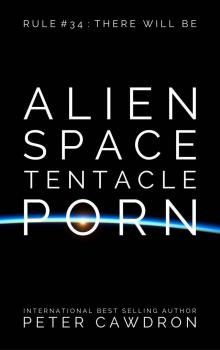 Alien Space Tentacle Porn
Alien Space Tentacle Porn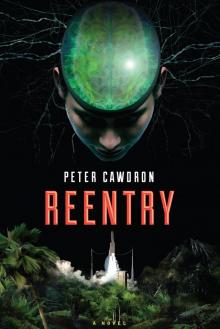 Reentry
Reentry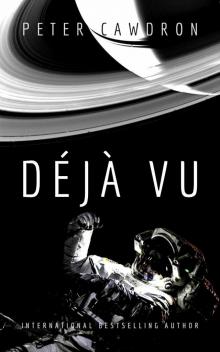 Déjà Vu (First Contact)
Déjà Vu (First Contact)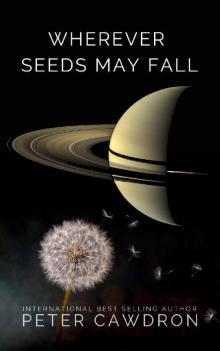 Wherever Seeds May Fall (First Contact)
Wherever Seeds May Fall (First Contact)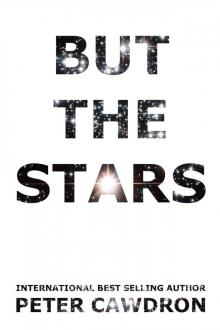 But The Stars
But The Stars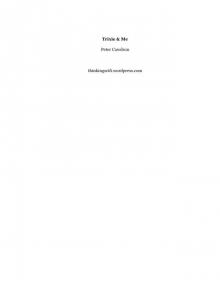 Trixie & Me
Trixie & Me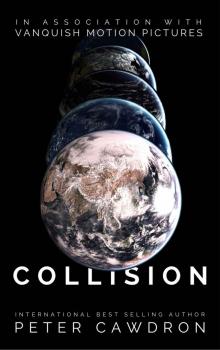 Collision
Collision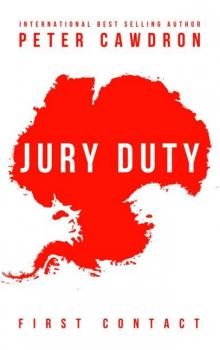 Jury Duty (First Contact)
Jury Duty (First Contact)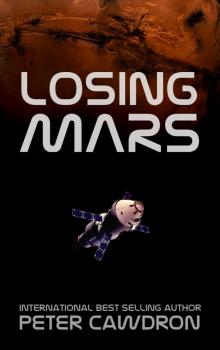 Losing Mars
Losing Mars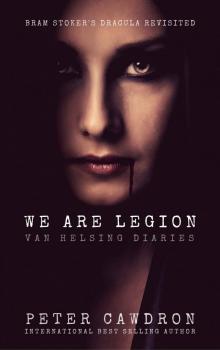 We Are Legion (van Helsing Diaries Book 2)
We Are Legion (van Helsing Diaries Book 2) Van Helsing's Diaries (Books 1-3): Nosferatu
Van Helsing's Diaries (Books 1-3): Nosferatu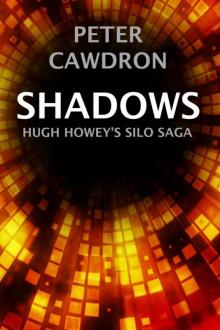 Shadows
Shadows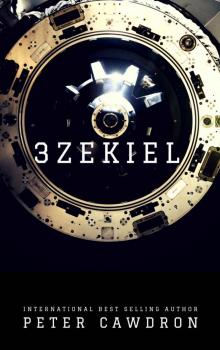 3zekiel (First Contact)
3zekiel (First Contact) Vampire (van Helsing Diaries Book 1)
Vampire (van Helsing Diaries Book 1)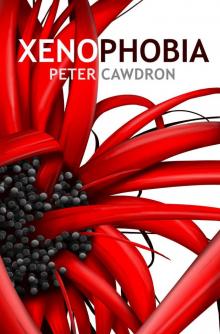 Xenophobia
Xenophobia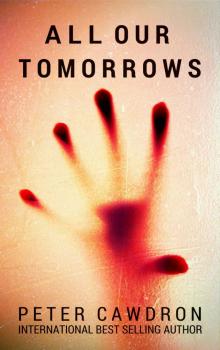 All Our Tomorrows
All Our Tomorrows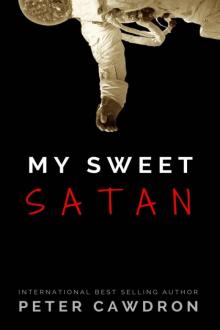 My Sweet Satan
My Sweet Satan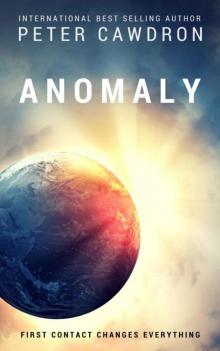 Anomaly
Anomaly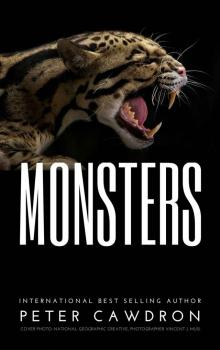 Monsters
Monsters